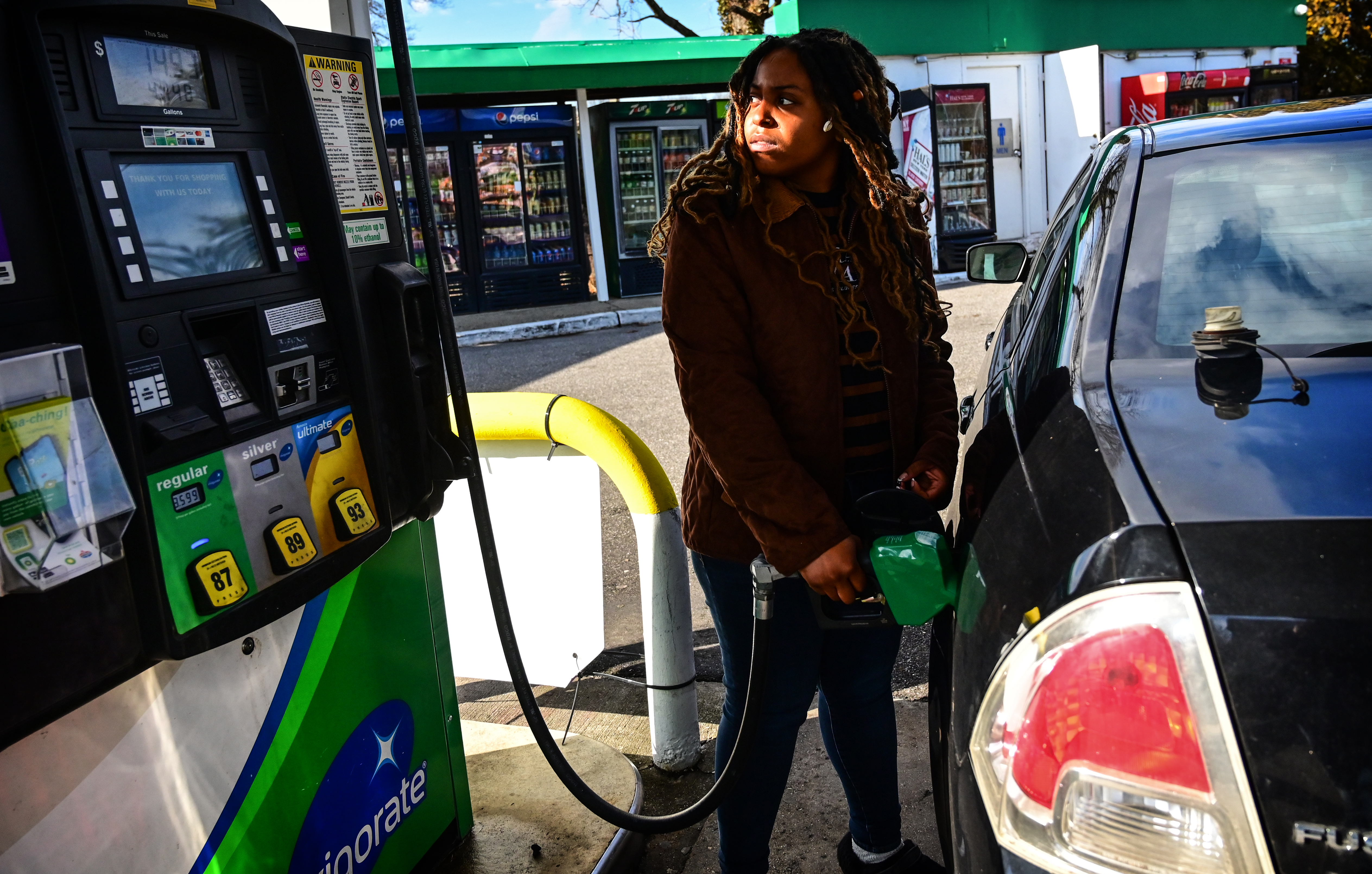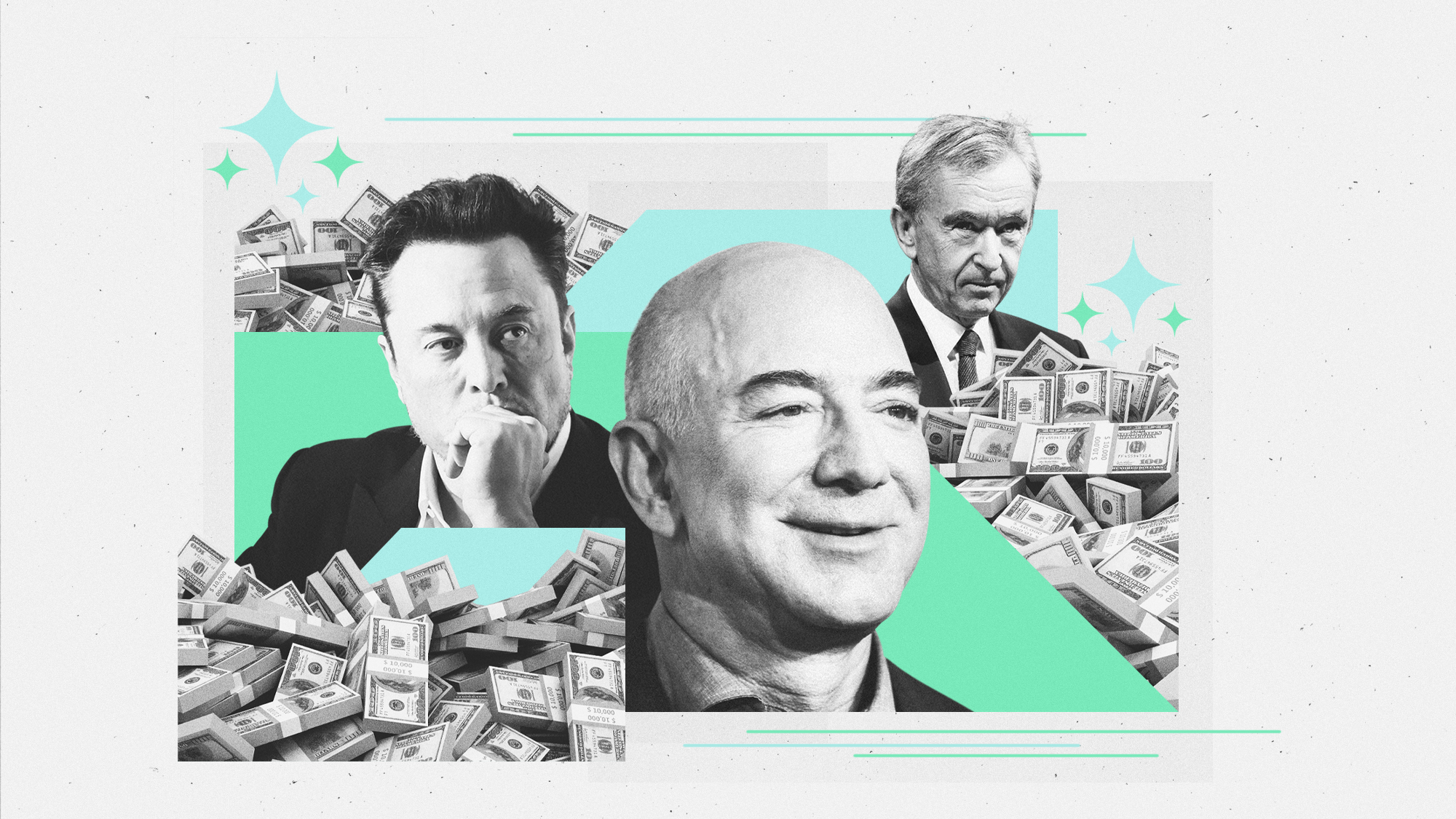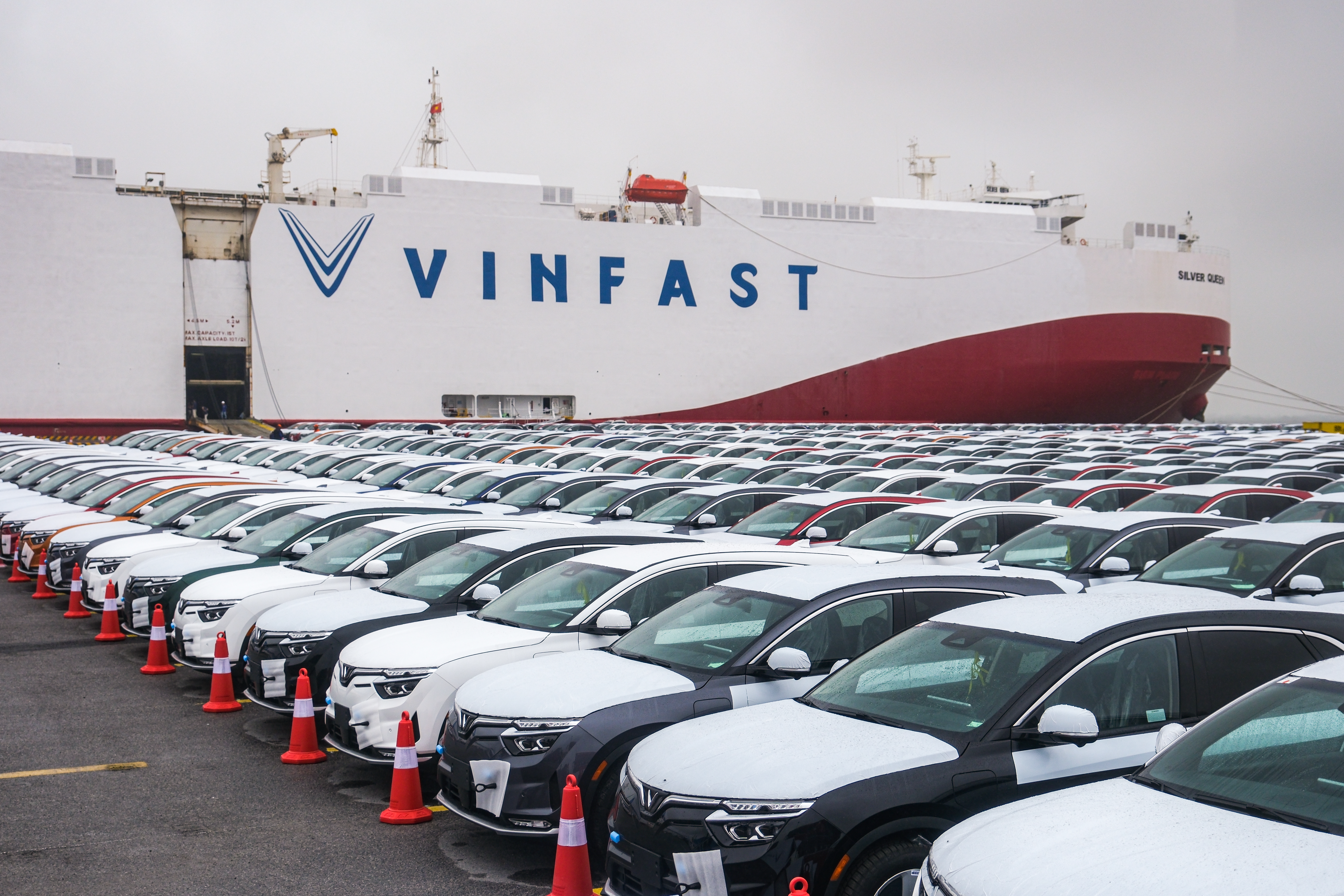Pain at the pump
Skyrocketing gas prices are squeezing working Americans and feeding inflation. How did we get here?

A free daily email with the biggest news stories of the day – and the best features from TheWeek.com
You are now subscribed
Your newsletter sign-up was successful
Skyrocketing gas prices are squeezing working Americans and feeding inflation. How did we get here? Here's everything you need to know:
How high are gas prices?
Average gasoline prices hit an all-time high of $5.02 a gallon last week, up from $3.40 last December — a staggering hike of more than 40 percent. Why? The simple law of supply and demand. When the coronavirus shut down the world in the spring of 2020, global demand for oil plunged, to the point where the cost of a barrel briefly dipped below zero. U.S. oil companies, sitting on brimming tanks of crude they could not sell, slashed production in response. Then, as Americans returned to work and traveled in large numbers last year, demand snowballed — faster than oil producers had anticipated. "They were severely behind the curve," said oil-market analyst Patrick De Haan. In February 2020, domestic oil fields were producing nearly 13 million barrels of crude daily; this February, the output was 11.3 million barrels. That same month, Russia invaded Ukraine, and the global supply took another hit.
How did the war affect oil?
Russia is one of the world's largest oil producers and the second-biggest exporter of crude oil after Saudi Arabia. But when Western nations hit Moscow with economic sanctions to punish it for waging war on Ukraine, Russian exports plummeted. That sent global prices skyward. Because oil is traded on a global market, the reduction in supply raised the per-barrel price even for the countries that didn't buy much oil from Russia; in the U.S., which banned all Russian energy imports in March, Russian oil made up less than 8 percent of the total. While Russia has found new buyers, the price of crude is now about $120 a barrel, nearly double what it was a year ago. The solution might seem straightforward: Just have oil companies ramp up output. But it's not so simple.
The Week
Escape your echo chamber. Get the facts behind the news, plus analysis from multiple perspectives.

Sign up for The Week's Free Newsletters
From our morning news briefing to a weekly Good News Newsletter, get the best of The Week delivered directly to your inbox.
From our morning news briefing to a weekly Good News Newsletter, get the best of The Week delivered directly to your inbox.
Why can't they just pump more?
It's not like turning on a spigot. Companies that had shut down wells and laid off thousands of workers can't immediately pick up where they left off, so any effort to boost production now won't affect prices in the near term. Starting a rig takes six to eight months even without the pandemic-induced shortages of labor, equipment, and materials. And there's another problem: reluctance within the industry to invest in expanding production. As the U.S. and the world shift away from fossil fuels and toward renewable energy and electric and high-efficiency vehicles, long-term profits don't seem like a safe bet. "Even though they see high prices today," said Christopher Knittel, an energy economist at MIT, "they're afraid that prices are going to tank over the life of that well." As a result, oil companies are feeling pressure from Wall Street to use profits to reward shareholders rather than invest in new production. And even if production spiked tomorrow, all that oil couldn't quickly be turned into gasoline.
Why not?
We lack enough oil refineries. Since 2019, the U.S. has lost more than 5 percent of its refining capacity — more than a million barrels a day — as money-losing facilities have been shuttered or refitted to process biofuels. That trend has been mirrored in the rest of the world, which has lost an additional capacity of more than 2 million barrels a day. And just like with drilling, gas producers worried about drops in future demand are reluctant to make the investments required to expand capacity. Few new U.S. refineries have been built in decades, and none are planned. That means there are no quick fixes for consumers. And a high gas price doesn't just raise the cost of a fill-up. Because the U.S. is so large, and so many goods are trucked long distances to stores, the price of gas affects the price of everything else, further driving inflation.
Can President Biden do anything?
Not a whole lot. The price at the pump is largely beyond his control. Biden has taken energy CEOs to task for failing to boost production — and for their current record profits (see box). And in May he began releasing a million barrels a day from the U.S. Strategic Petroleum Reserve. But neither effort has had much effect, and experts agree his latest plan, to suspend the federal gas tax of 18 cents per gallon, would bring consumers little relief and may increase demand. Biden is also asking foreign suppliers to boost production: He's planning a trip to Saudi Arabia and has sent envoys to Venezuela, from whom we haven't bought oil since 2019. Those efforts, though, won't yield near-term relief, and neither would the Republican proposal to open more federal lands to drilling. Meanwhile, as summer travel picks up, so will the demand for gas. "Anything goes from June 20 to Labor Day," said Tom Kloza of the Oil Price Information Service. "We could certainly see the national average approach $6."
Oil execs rake in profits
Are the gas companies price gouging? Critics point out that the companies are posting record profits — more than $35 billion for the top five firms in the first three months of 2022. "You are ripping the American people off, and it must end," Rep. Raul Ruiz (D-Calif.) told oil executives at an April hearing. But while higher prices do mean higher profits, experts point out that oil companies have no power over crude oil prices set by a global market. Gas executives also note that they lose big when the market tanks — Exxon Mobil, which cleared $23 billion in 2021, lost $22.4 billion in 2020. A fairer criticism, analysts say, is that oil companies are using their cash to reward CEOs and shareholders rather than to expand production. But it's also true they have scant incentive to expand, given that Biden, the Democrats, and environmentalists want to wean the nation off oil to slow climate change. "The world needs more oil output today but less in the long run," said Jason Bordoff, director of Columbia University's Center on Global Energy Policy. "That's a difficult needle to thread."
A free daily email with the biggest news stories of the day – and the best features from TheWeek.com
This article was first published in the latest issue of The Week magazine. If you want to read more like it, you can try six risk-free issues of the magazine here.
-
 What are the best investments for beginners?
What are the best investments for beginners?The Explainer Stocks and ETFs and bonds, oh my
-
 What to know before filing your own taxes for the first time
What to know before filing your own taxes for the first timethe explainer Tackle this financial milestone with confidence
-
 The biggest box office flops of the 21st century
The biggest box office flops of the 21st centuryin depth Unnecessary remakes and turgid, expensive CGI-fests highlight this list of these most notorious box-office losers
-
 The rise of the world's first trillionaire
The rise of the world's first trillionairein depth When will it happen, and who will it be?
-
 The surge in child labor
The surge in child laborThe Explainer A growing number of companies in the U.S. are illegally hiring children — and putting them to work in dangerous jobs.
-
 Your new car may be a 'privacy nightmare on wheels'
Your new car may be a 'privacy nightmare on wheels'Speed Read New cars come with helpful bells and whistles, but also cameras, microphones and sensors that are reporting on everything you do
-
 Empty office buildings are blank slates to improve cities
Empty office buildings are blank slates to improve citiesSpeed Read The pandemic kept people home and now city buildings are vacant
-
 Why auto workers are on the brink of striking
Why auto workers are on the brink of strikingSpeed Read As the industry transitions to EVs, union workers ask for a pay raise and a shorter workweek
-
 American wealth disparity by the numbers
American wealth disparity by the numbersThe Explainer The gap between rich and poor continues to widen in the United States
-
 Cheap cars get run off the road
Cheap cars get run off the roadSpeed Read Why automakers are shedding small cars for SUVs, and what that means for buyers
-
 Vietnamese EV maker VinFast wows with staggering Nasdaq debut
Vietnamese EV maker VinFast wows with staggering Nasdaq debutSpeed Read Can the company keep up the pace, or is it running out of gas?